My Unconventional Approach to Film Acting
And Why I Take the Risk
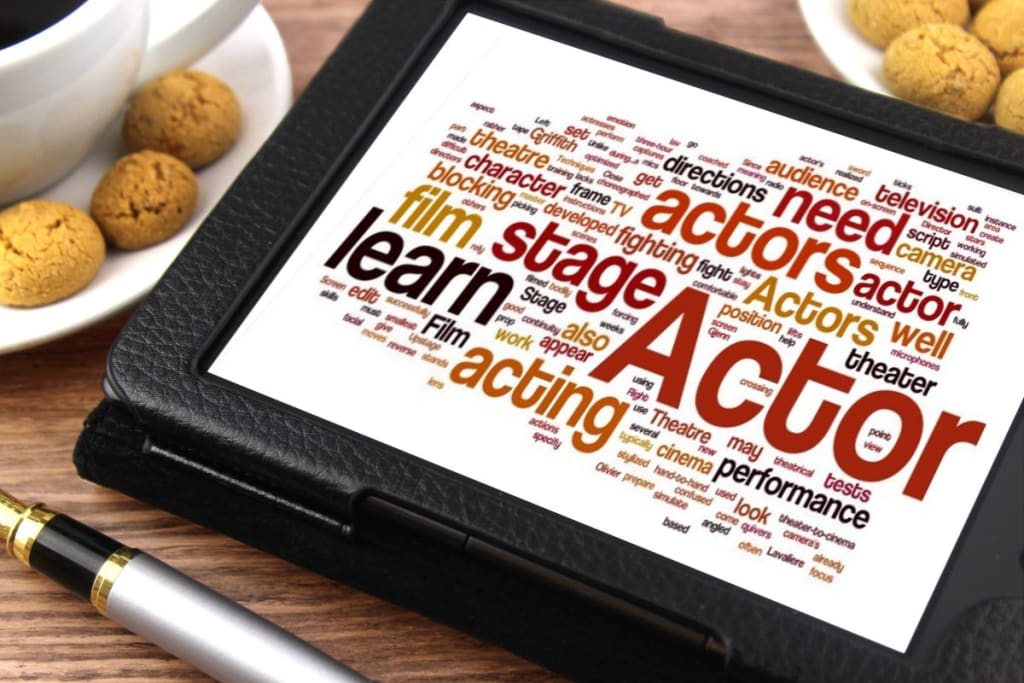
Personally, I never memorize a script for film. I do not want to appear rehearsed and too polished to be realistic on camera. Instead, I learn the story and approach the process of acting much in the way we play the game of Gossip as kids: You hear the story, you know what happens to whom and who said what, and then you go elsewhere and repeat it, telling the story to the next person in the most believable manner as possible, even if you make up some of your own parts. I read the script to learn what happened to whom but that's as far as I take the script.
Talk it out.
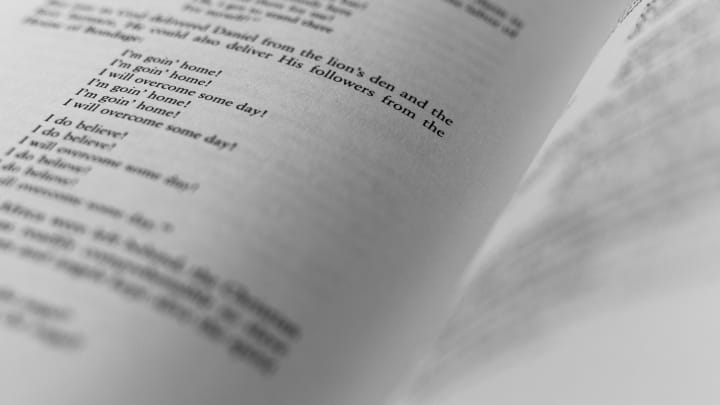
I learn the story, not the lines.
I don't do the normal script break-breakdown and character analysis in the traditional fashion. Instead, I have a conversation with the writer and director about the character as if I were checking up on an old friend and I ask all kinds of questions about things that are not mentioned in the script. Where is her husband? Which parent was she closest to? What is her biggest fear? Did she play sports in school? I ask the writer these things, which usually throws them for a loop and I'm often told, “I really don't know. I've not written a back story.” As an actor, however, a backstory is more important to me than the story at hand. For instance, when I was filming The Holy Heist, I needed to know why my husband wasn't with me. Did he leave me for another woman or did he die on me? Now, this wouldn't seem important considering I wasn't ever in a scene with him, but I did feel that my feelings toward him would directly affect how I treated my children. If he left me, perhaps I felt burdened by being forced to be a single mother and might lash out at my children unexpectedly over little things. If he died, however, perhaps I would take care to be more gentle with them, and possibly let them get away with murder because I'd felt like they had been through enough pain.
It's Not in the Script
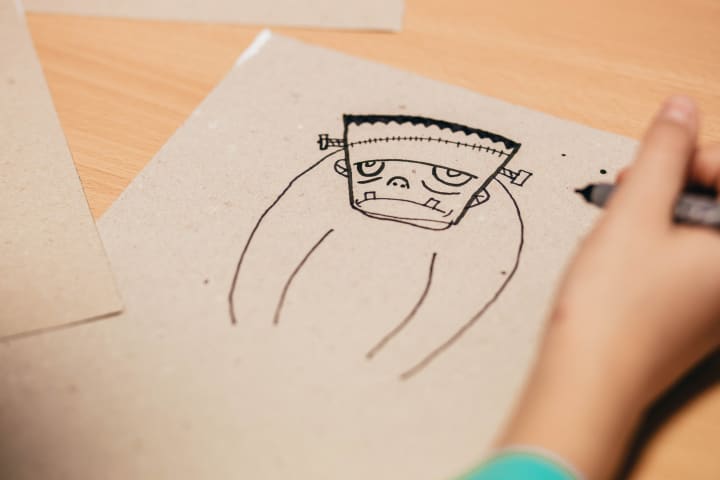
Ain't nobody got time for monsters on the set!
As trained actors, we are taught to come up with backstories for our characters on our own during a process of character analysis and script breakdowns. We are supposed to dig and figure out mental and emotional histories of our character, their weaknesses, and strengths and we are supposed to make a proverbial cake with those ingredients. What I have found is one man's wedding cake is another man's pot brownie. I can come up with what I believe is the perfect character analysis and think I know my character to a T but when I present that in front of the director I might have created a Frankenstein the director doesn’t recognize and they could be like, "Woah! Who is this?" I might have taken the character in a totally different direction than they see them in their own head. On a film set, there isn't much time to keep assessing a character.
I got questions!

Realism is rarely written in the script.
When I was filming Murder on the Dance Floor, I was told: "you're looking over there, worried about your neighbor." I knew my neighbor's daughter had died but that was all I was given. Nowhere in the script did it give any information other than that. As a mother, I know how I would feel if my own daughter died but that wasn't what was happening in the scene. I was a concerned neighbor. Was I a nosey neighbor who thought the death sucked but I really just wanted to go over there and find out the scoop to have something to gossip about? Was I best friends with this neighbor and genuinely hurt for her? Did I go to high school with this neighbor and had known her for thirty years and the fact she's going through this is devastating me or did I meet her only a few years ago when one of us moved into the neighborhood and I kind of feel for her but just more so want to go show my support? Why do I care? How much do I care? Does it just cross my mind or does it keep me up at night? Did this girl play sports with my kid and I just kind of knew her or did she spend the night at my house often and I took this personally because she would now be a missing element in my own life as well? It was so much easier to just ask a few questions on set before we started rolling than it would have been to try to have a sit down with the director and do a full analysis.
If I were doing a scene that simply said, "You find drugs in your kid's room and you are mad", I would have questions if the script gave no further backstory. Why am I mad? To what extent am I mad? Am I heartbroken and scared or am I ready to kill them? Am I mad because I have never touched a drug in my life, never knew an addict, and have only gotten my education about drugs from things I'd heard and seen on TV? Was someone in my family an addict and I had to deal with being lied to and robbed before and thus don't want my child to turn out like that? Did I try drugs in my younger years and, while I can relate, I don't want my child to do what I did? Am I a struggling closet-addict myself and am devastated that my child might be following in my own footsteps? Just because a script doesn't mention it doesn't mean it isn't happening, it just means it's not what the main focus of the story is about. In real life, things happen every day in our lives that go without being spoken about or written in a diary about the day's events. They happen, they just aren't part of the big story. They are equally important, however, because all the little things we do ultimately lead to the big things that our lives revolve around. What are my skeletons that I do, think, and feel without speaking of? It is these things I ponder. These are all questions I would get to ask a theatrical director at one of the many rehearsals and I could then go home and build the character around the input. Film doesn't give such luxury. There is almost never a read-through where actors get to throw ideas off each other and the director. The written words that your person says are about all you get; therefore, I must create the character on the fly, so I create various versions of the character in my head before I get to set and figure which one to be when I get there.
I keep it real.
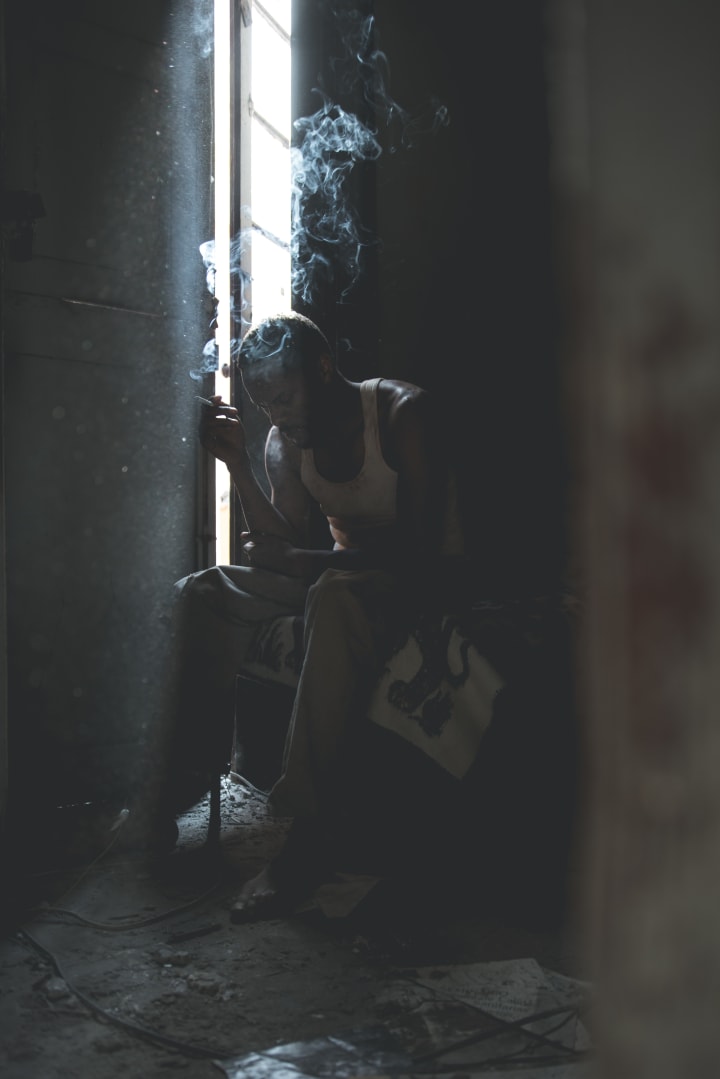
Realism is not a method, it's life.
I have been referred to as a method actor but I don't see myself as such. I just see myself as "real." I really do or feel whatever happens. I do not have to go back into my past and think about that time my puppy died in order for me to cry. You're sitting here telling me that my mother has Alzheimer's and will be dead within ten years. I don't have to revert to some tragic memory to make that sad. It is sad. I don't have to make myself feel that or cry about that. I will just naturally cry because it is sad. I do not have to go get diabetes to know how upset I am supposed to be when you tell me my character is going to have to change everything in her life because she's got diabetes. I know what that means so I know how that feels. I don't have to get bit by a snake to know how to act like that. I am not a method actor. I am a real actor.
Whatever is happening to me in the scene in really happening to me during the time that scene is taking place, therefore whatever emotion or reaction you get from me will be 100% real. It's not a method I have worked up. It is not something I have to dig up. You are watching me experience it in real time, just as I would be if the character were a living, breathing person.
Watch My Revelation

I get to my destination by taking a different route.
And, this is why I do not memorize my lines for film. In real life I do not know what someone is going to say to me before they walk into the room and say it. I know who they are. I know who I am. I know our relationship but I do not know the future. If I know the future, the fact my thoughts and words are premeditated will come across on screen. In order for me to give a believable performance on screen, I do not want to know the future. I want to know the past. Tell me where we have been and common sense and nature will make me go where you need me to go. I will naturally know what to say and do if I know what got us to here. I want that rawness, that realism to captivate the audience when they see me on screen. I want them to see the wheels turn inside my head through my eyes way before they ever hear a word come out of my mouth. I want them to heartbreak with me because they are truly watching me find these things out for the first time. I want them to relate.
Do as I say, not as I do!
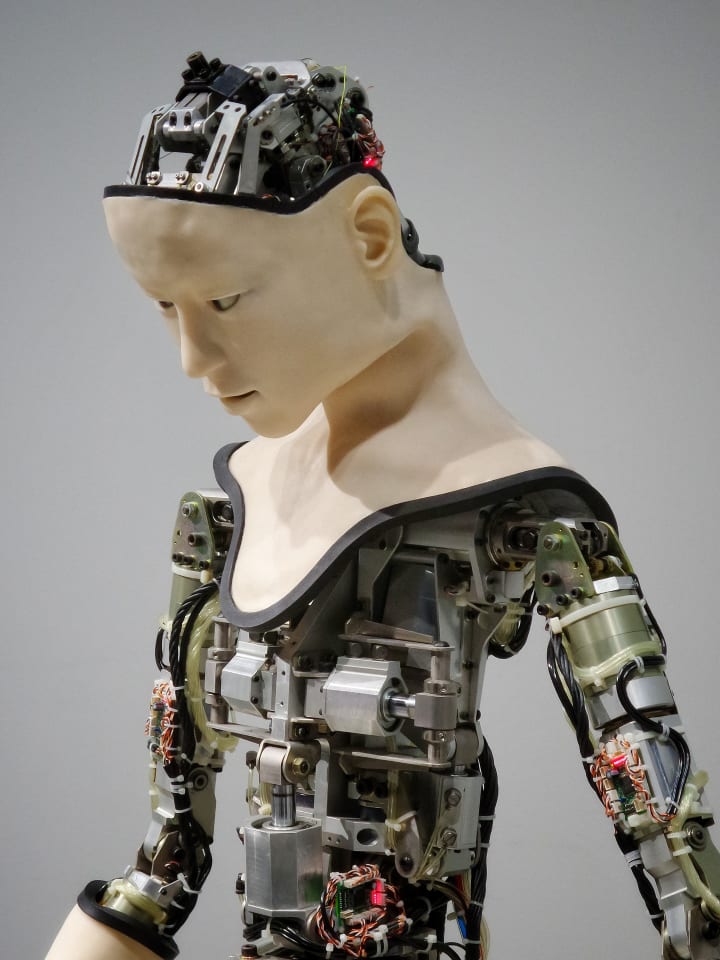
I figure out what makes people tick and I use it.
Do I recommend this unconventional approach to other actors? I can't say that I do. I can't say that I don't. I can say it works for me. I can say that I don't recommend it to new actors or actors who have only been acting about five years. More experienced actors who have studied psychology, sociology, and anthropology might have results similar to mine. My approach requires you to seriously study people. It requires you to truly understand people inside and out, understand what makes people tick, and requires you to be able to find patterns and connect dots quickly that universal audiences will relate to. Symbolisms that everybody understands. If an actor feels comfortable in their ability to break down people to their finest, rawest material, they might find great success in this approach. Likewise, I cannot recommend formal acting techniques for film as I believe them to be too polished for film and find stage acting to be distracting on film. It comes across too "soap opera" for a movie, too mellow dramatic to be believable. And I cannot recommend method acting because it takes someone very, very secure mentally and emotionally to be able to fully engulf themselves in a character's habits for a long period of time and come out untouched at the end of the process. I recommend studying people.
Let art imitate life.

People watching is my method.
Study people at the mall, study the people you know, and study everyone you meet. Figure out why they are as they are. Go to the park and watch people. Notice the way they walk, the way they are dressed. Decide why they are exactly everything you observe. Why do they dye their hair? Why do they wear that brand of shoes? Why did they choose to wear that jacket that day? How many kids do they probably have? Who is waiting for them at home? How do those people act? What is this person's hobbies? How can you tell? What's the worst thing this person has ever been through? What was their happiest childhood memory? Study people is my advice. Study why people think as they do. Study the science of how people interact with people similar to them and people different from them. If you have a thorough understanding of these things, you likewise will be able to create a character on the spot who is both deep and believable and also completely relatable without sounding robotic due to reciting lines written by someone else.
Like what you read? Follow me for more!
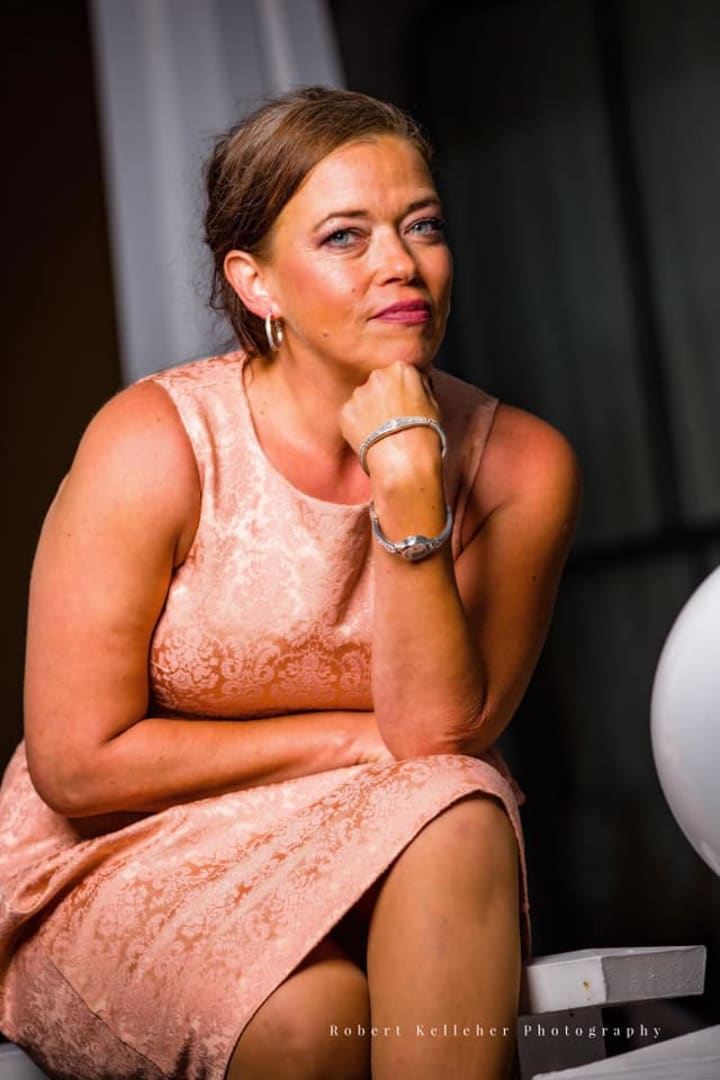
Follow me on social media:
Facebook! Twitter! Instagram! IMDB! Youtube! Actors Compass!
Contact me on my official website!
“If you enjoy my stories and would like to hear more, share my work with your friends on social media or send me a gift below to help contribute to my next adventure! Any support is appreciated. 😊”
About the Creator
Genealogy Freak
A mother, daughter, sister and "Star Stuff". I have been a storyteller all my life and obsessed with genealogy nearly as long.. I'm an observer and storyteller by nature. I research the lives of my ancestors and document their stories
Enjoyed the story? Support the Creator.
Subscribe for free to receive all their stories in your feed. You could also pledge your support or give them a one-off tip, letting them know you appreciate their work.


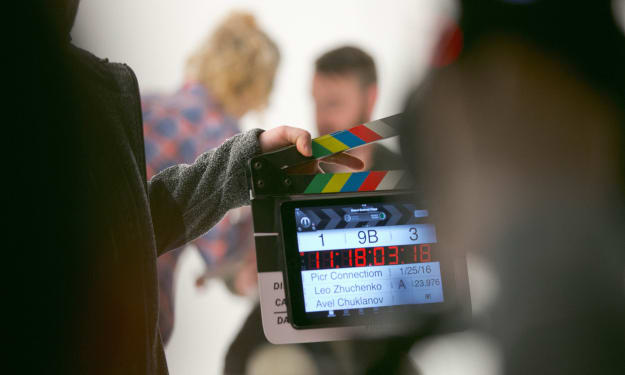



Comments
There are no comments for this story
Be the first to respond and start the conversation.